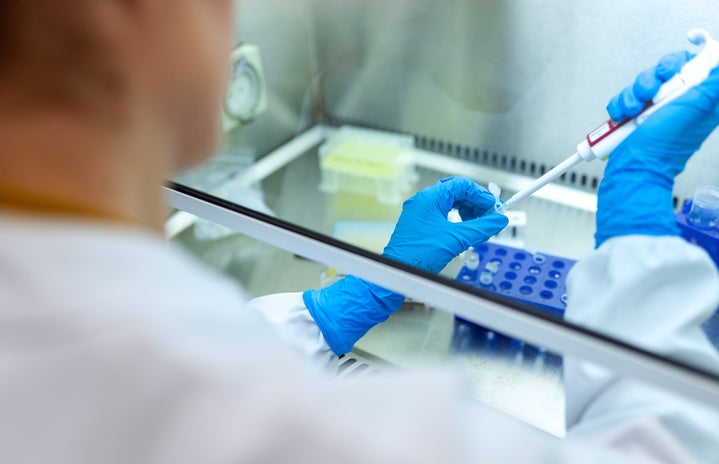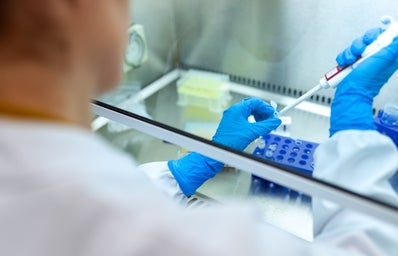While he is known for his medical efforts in the 2020 pandemic with COVID-19, Dr. Anthony Fauci has contributed much more to society than meets the public eye.
Fauci was born to a first-generation Italian-American family on Dec. 24, 1940, in Brooklyn, New York. Known for his athleticism, Fauci participated in various school sports and eventually became captain of the Regis High School basketball team. When he was not in school or at practice, Fauci always lent a hand with his father’s pharmacy, running errands or helping around the store.
After graduating high school, the immunologist went to the College of the Holy Cross in Worcester, Massachusetts to further his pre-med studies. In 1966, Fauci graduated top of his class at Cornell Medical College in New York City, followed by an internship and residency at the New York Hospital-Cornell Medical Center, a well-established and highly respected hospital in the nation.
In 1968, Fauci joined the National Institutes of Health (NIH) as part of the Laboratory of Clinical Investigation (LCI) at the National Institute of Allergy and Infectious Diseases (NIAID). He began building a reputable foundation for his career in the field of immunology by developing numerous successful drugs throughout his extensive research for fatal illnesses like polyarteritis, nodosa, granulomatosis with polyangiitis and lymphomatoid granulomatosis. In 1974, Dr. Fauci became head of the Clinical Physiology Section and in 1984, the Chief of the Laboratory of Immunoregulation and Director of NIAID, a position which he still holds in 2021.
When the AIDS (Acquired immunodeficiency syndrome) epidemic was announced in the 1980s, Dr. Fauci lobbied for increased support in AIDS funding and advocated with activists to allow experimental drugs from clinical trials to be used with infected patients. Dr. Fauci studied the virus, eventually developing an understanding of how the HIV cells were attacking the immune system. This led to the creation of medications that could subdue the effects of the lethal virus, allowing people the chance to live a long and happy life with their condition.
After his efforts to save as many affected lives as possible, Dr. Fauci stepped down from his leadership position at the Office of AIDS Research in 1994. However, he kept close contact with updates on the virus by continuing to combat the disease with former President George W. Bush on his “The President’s Emergency Plan for AIDS Relief” (PEPFAR) order in 2003 that focused its attention on the epidemic in Africa and other less-developed areas around the world. Fauci also showed his support for the development of biodefense drugs and vaccines after the 9/11 terrorist attacks that rocked America in the early 2000s.
As a well-rounded doctor does, Dr. Fauci expanded his research portfolio with other immune-related illnesses. Among AIDS, Dr. Fauci also studied and worked with SARS, the Swine flu, MERS, Ebola and COVID-19. What is notably unique about the talented scientist and doctor is his empathetic human touch for others even in the most dangerous parts of his career; when Ebola surfaced in 2014, Dr. Fauci was famously seen hugging an American nurse who had recovered from the disease before traveling to an outbreak in Liberia for clinical trials of vaccines. Similarly, Dr. Fauci has maintained personal contact with the public by supplying monthly newsletters that detail breakthroughs and updates to vaccines and cases.

There has been a report of 110 million cases diagnosed and over two million deaths since the COVID-19 epidemic was announced in early March 2020. Dr. Fauci was appointed head of the White House task force on COVID-19 in 2020 by former President Donald Trump to combat the virus and set up a hierarchy of safety for the public to follow to lessen the percentage of deaths and cases in America. Since the Pfizer-BioNTech COVID-19 vaccine was presented to the public in early 2021, Dr. Fauci has announced its 95 percent efficacy rate and has shown his support for administering and receiving the shot for people currently 65 years or older.
All in all, Dr. Fauci’s life has been dedicated to helping others in a crisis and using his platform to find a cure for those that were too weak to have a voice of their own. After receiving countless awards such as the Medal of Freedom, the National Medal of Science, an induction to the Government Hall of Fame and over 40 honorary doctoral degrees from universities around the world, Fauci has become a global treasure and one of the most well-respected scientists of our time.
Want to see more HCFSU? Be sure to like us on Facebook and follow us on Instagram, Twitter, TikTok, Youtube and Pinterest!



